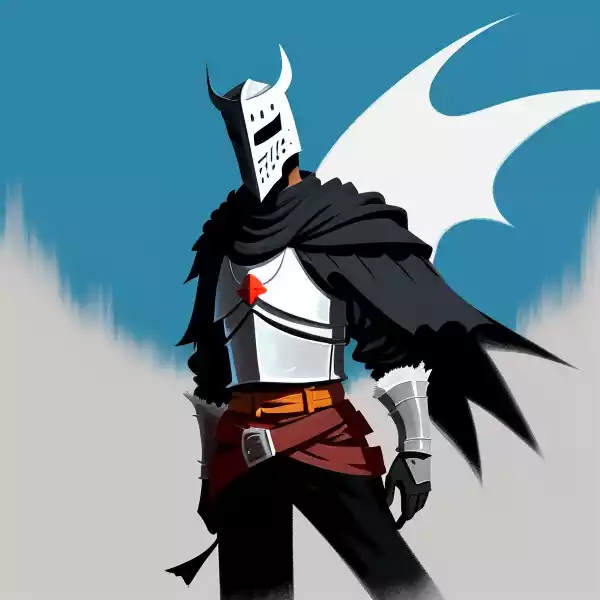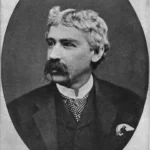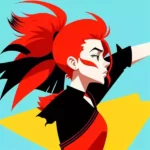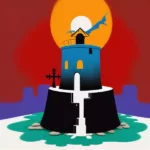 | |
A Knight-Errant Of The Foothills | |
| Author | Bret Harte |
|---|---|
| Published |
1864
|
| Language | English |
| Nationality | American |
| Genre | Western |
1864 Short Story
A Knight-Errant Of The Foothills
A Knight-Errant Of The Foothills is an English Western short story by American writer Bret Harte. It was first published in 1864.
A Knight-Errant Of The Foothills
by Bret Harte
I.
As Father Felipe slowly toiled up the dusty road towards the Rancho of the Blessed Innocents, he more than once stopped under the shadow of a sycamore to rest his somewhat lazy mule and to compose his own perplexed thoughts by a few snatches from his breviary. For the good padre had some reason to be troubled. The invasion of Gentile Americans that followed the gold discovery of three years before had not confined itself to the plains of the Sacramento, but stragglers had already found their way to the Santa Cruz Valley, and the seclusion of even the mission itself was threatened. It was true that they had not brought their heathen engines to disembowel the earth in search of gold, but it was rumored that they had already speculated upon the agricultural productiveness of the land, and had espied “the fatness thereof.” As he reached the higher plateau he could see the afternoon sea-fog–presently to obliterate the fair prospect–already pulling through the gaps in the Coast Range, and on a nearer slope–no less ominously–the smoke of a recent but more permanently destructive Yankee saw-mill was slowly drifting towards the valley.
“Get up, beast!” said the father, digging his heels into the comfortable flanks of his mule with some human impatience, “or art THOU, too, a lazy renegade? Thinkest thou, besotted one, that the heretic will spare thee more work than the Holy Church.”
The mule, thus apostrophized in ear and flesh, shook its head obstinately as if the question was by no means clear to its mind, but nevertheless started into a little trot, which presently brought it to the low adobe wall of the courtyard of “The Innocents,” and entered the gate. A few lounging peons in the shadow of an archway took off their broad-brimmed hats and made way for the padre, and a half dozen equally listless vaqueros helped him to alight. Accustomed as he was to the indolence and superfluity of his host’s retainers, to-day it nevertheless seemed to strike some note of irritation in his breast.
A stout, middle-aged woman of ungirt waist and beshawled head and shoulders appeared at the gateway as if awaiting him. After a formal salutation she drew him aside into an inner passage.
“He is away again, your Reverence,” she said.
“Ah–always the same?”
“Yes, your Reverence–and this time to ‘a meeting’ of the heretics at their pueblo, at Jonesville–where they will ask him of his land for a road.”
“At a MEETING?” echoed the priest uneasily.
“Ah yes! a meeting–where Tiburcio says they shout and spit on the ground, your Reverence, and only one has a chair and him they call a ‘chairman’ because of it, and yet he sits not but shouts and spits even as the others and keeps up a tapping with a hammer like a very pico. And there it is they are ever ‘resolving’ that which is not, and consider it even as done.”
“Then he is still the same,” said the priest gloomily, as the woman paused for breath.
“Only more so, your Reverence, for he reads nought but the newspaper of the Americanos that is brought in the ship, the ‘New York ‘errald’–and recites to himself the orations of their legislators. Ah! it was an evil day when the shipwrecked American sailor taught him his uncouth tongue, which, as your Reverence knows, is only fit for beasts and heathen incantation.”
“Pray Heaven THAT were all he learned of him,” said the priest hastily, “for I have great fear that this sailor was little better than an atheist and an emissary from Satan. But where are these newspapers and the fantasies of publicita that fill his mind? I would see them, my daughter.”
“You shall, your Reverence, and more too,” she replied eagerly, leading the way along the passage to a grated door which opened upon a small cell-like apartment, whose scant light and less air came through the deeply embayed windows in the outer wall. “Here is his estudio.”
In spite of this open invitation, the padre entered with that air of furtive and minute inspection common to his order. His glance fell upon a rude surveyor’s plan of the adjacent embryo town of Jonesville hanging on the wall, which he contemplated with a cold disfavor that even included the highly colored vignette of the projected Jonesville Hotel in the left-hand corner. He then passed to a supervisor’s notice hanging near it, which he examined with a suspicion heightened by that uneasiness common to mere worldly humanity when opposed to an unknown and unfamiliar language. But an exclamation broke from his lips when he confronted an election placard immediately below it. It was printed in Spanish and English, and Father Felipe had no difficulty in reading the announcement that “Don Jose Sepulvida would preside at a meeting of the Board of Education in Jonesville as one of the trustees.”
“This is madness,” said the padre.
Observing that Dona Maria was at the moment preoccupied in examining the pictorial pages of an illustrated American weekly which had hitherto escaped his eyes, he took it gently from her hand.
“Pardon, your Reverence,” she said with slightly acidulous deprecation, “but thanks to the Blessed Virgin and your Reverence’s teaching, the text is but gibberish to me and I did but glance at the pictures.”
“Much evil may come in with the eye,” said the priest sententiously, “as I will presently show thee. We have here,” he continued, pointing to an illustration of certain college athletic sports, “a number of youthful cavaliers posturing and capering in a partly nude condition before a number of shameless women, who emulate the saturnalia of heathen Rome by waving their handkerchiefs. We have here a companion picture,” he said, indicating an illustration of gymnastic exercises by the students of a female academy at “Commencement,” “in which, as thou seest, even the aged of both sexes unblushingly assist as spectators with every expression of immodest satisfaction.”
“Have they no bull-fights or other seemly recreation that they must indulge in such wantonness?” asked Dona Maria indignantly, gazing, however, somewhat curiously at the baleful representations.
“Of all that, my daughter, has their pampered civilization long since wearied,” returned the good padre, “for see, this is what they consider a moral and even a religious ceremony.” He turned to an illustration of a woman’s rights convention; “observe with what rapt attention the audience of that heathen temple watch the inspired ravings of that elderly priestess on the dais. It is even this kind of sacrilegious performance that I am told thy nephew Don Jose expounds and defends.”
“May the blessed saints preserve us; where will it lead to?” murmured the horrified Dona Maria.
“I will show thee,” said Father Felipe, briskly turning the pages with the same lofty ignoring of the text until he came to a representation of a labor procession. “There is one of their periodic revolutions unhappily not unknown even in Mexico. Thou perceivest those complacent artisans marching with implements of their craft, accompanied by the military, in the presence of their own stricken masters. Here we see only another instance of the instability of all communities that are not founded on the principles of the Holy Church.”
“And what is to be done with my nephew?”
The good father’s brow darkened with the gloomy religious zeal of two centuries ago. “We must have a council of the family, the alcalde, and the archbishop, at ONCE,” he said ominously. To the mere heretical observer the conclusion might have seemed lame and impotent, but it was as near the Holy inquisition as the year of grace 1852 could offer.
A few days after this colloquy the unsuspecting subject of it, Don Jose Sepulvida, was sitting alone in the same apartment. The fading glow of the western sky, through the deep embrasured windows, lit up his rapt and meditative face. He was a young man of apparently twenty-five, with a colorless satin complexion, dark eyes alternating between melancholy and restless energy, a narrow high forehead, long straight hair, and a lightly penciled moustache. He was said to resemble the well-known portrait of the Marquis of Monterey in the mission church, a face that was alleged to leave a deep and lasting impression upon the observers. It was undoubtedly owing to this quality during a brief visit of the famous viceroy to a remote and married ancestress of Don Jose at Leon that the singular resemblance may be attributed.
A heavy and hesitating step along the passage stopped before the grating. Looking up, Don Jose beheld to his astonishment the slightly inflamed face of Roberto, a vagabond American whom he had lately taken into his employment.
Roberto, a polite translation of “Bob the Bucker,” cleaned out at a monte-bank in Santa Cruz, penniless and profligate, had sold his mustang to Don Jose and recklessly thrown himself in with the bargain. Touched by the rascal’s extravagance, the quality of the mare, and observing that Bob’s habits had not yet affected his seat in the saddle, but rather lent a demoniac vigor to his chase of wild cattle, Don Jose had retained rider and horse in his service as vaquero.
Bucking Bob, observing that his employer was alone, coolly opened the door without ceremony, shut it softly behind him, and then closed the wooden shutter of the grating. Don Jose surveyed him with mild surprise and dignified composure. The man appeared perfectly sober,–it was a peculiarity of his dissipated habits that, when not actually raving with drink, he was singularly shrewd and practical.
“Look yer, Don Kosay,” he began in a brusque but guarded voice, “you and me is pards. When ye picked me and the mare up and set us on our legs again in this yer ranch, I allowed I’d tie to ye whenever you was in trouble–and wanted me. And I reckon that’s what’s the matter now. For from what I see and hear on every side, although you’re the boss of this consarn, you’re surrounded by a gang of spies and traitors. Your comings and goings, your ins and outs, is dogged and followed and blown upon. The folks you trust is playing it on ye. It ain’t for me to say why or wherefore– what’s their rights and what’s yourn–but I’ve come to tell ye that if you don’t get up and get outer this ranch them d–d priests and your own flesh and blood–your aunts and your uncles and your cousins, will have you chucked outer your property, and run into a lunatic asylum.”
“Me–Don Jose Sepulvida–a lunatico! You are yourself crazy of drink, friend Roberto.”
“Yes,” said Roberto grimly, “but that kind ain’t ILLEGAL, while your makin’ ducks and drakes of your property and going into ‘Merikin ideas and ‘Merikin speculations they reckon is. And speakin’ on the square, it ain’t NAT’RAL.”
Don Jose sprang to his feet and began to pace up and down his cell- like study. “Ah, I remember now,” he muttered, “I begin to comprehend: Father Felipe’s homilies and discourses! My aunt’s too affectionate care! My cousin’s discreet consideration! The prompt attention of my servants! I see it all! And you,” he said, suddenly facing Roberto, “why come you to tell me this?”
“Well, boss,” said the American dryly, “I reckoned to stand by you.”
“Ah,” said Don Jose, visibly affected. “Good Roberto, come hither, child, you may kiss my hand.”
“If! it’s all the same to you, Don Kosay,–THAT kin slide.”
“Ah, if–yes,” said Don Jose, meditatively putting his hand to his forehead, “miserable that I am!–I remembered not you were Americano. Pardon, my friend–embrace me–Conpanero y Amigo.”
With characteristic gravity he reclined for a moment upon Robert’s astonished breast. Then recovering himself with equal gravity he paused, lifted his hand with gentle warning, marched to a recess in the corner, unhooked a rapier hanging from the wall, and turned to his companion.
“We will defend ourselves, friend Roberto. It is the sword of the Comandante–my ancestor. The blade is of Toledo.”
“An ordinary six-shooter of Colt’s would lay over that,” said Roberto grimly–“but that ain’t your game just now, Don Kosay. You must get up and get, and at once. You must vamose the ranch afore they lay hold of you and have you up before the alcalde. Once away from here, they daren’t follow you where there’s ‘Merikin law, and when you kin fight ’em in the square.”
“Good,” said Don Jose with melancholy preciseness. “You are wise, friend Roberto. We may fight them later, as you say–on the square, or in the open Plaza. And you, camarado, YOU shall go with me–you and your mare.”
Sincere as the American had been in his offer of service, he was somewhat staggered at this imperative command. But only for a moment. “Well,” he said lazily, “I don’t care if I do.”
“But,” said Don Jose with increased gravity, “you SHALL care, friend Roberto. We shall make an alliance, an union. It is true, my brother, you drink of whiskey, and at such times are even as a madman. It has been recounted to me that it was necessary to your existence that you are a lunatic three days of the week. Who knows? I myself, though I drink not of aguardiente, am accused of fantasies for all time. Necessary it becomes therefore that we should go TOGETHER. My fantasies and speculations cannot injure you, my brother; your whiskey shall not empoison me. We shall go together in the great world of your American ideas of which I am much inflamed. We shall together breathe as one the spirit of Progress and Liberty. We shall be even as neophytes making of ourselves Apostles of Truth. I absolve and renounce myself henceforth of my family. I shall take to myself the sister and the brother, the aunt and the uncle, as we proceed. I devote myself to humanity alone. I devote YOU, my friend, and the mare–though happily she has not a Christian soul–to this glorious mission.”
The few level last rays of light lit up a faint enthusiasm in the face of Don Jose, but without altering his imperturbable gravity. The vaquero eyed him curiously and half doubtfully.
“We will go to-morrow,” resumed Don Jose with solemn decision, “for it is Wednesday. It was a Sunday that thou didst ride the mare up the steps of the Fonda and demanded that thy liquor should be served to thee in a pail. I remember it, for the landlord of the Fonda claimed twenty pesos for damage and the kissing of his wife. Therefore, by computation, good Roberto, thou shouldst be sober until Friday, and we shall have two clear days to fly before thy madness again seizes thee.”
“They kin say what they like, Don Kosay, but YOUR head is level,” returned the unabashed American, grasping Don Jose’s hand. “All right, then. Hasta manana, as your folks say.”
“Hasta manana,” repeated Don Jose gravely.
At daybreak next morning, while slumber still weighted the lazy eyelids of “the Blessed Innocents,” Don Jose Sepulvida and his trusty squire Roberto, otherwise known as “Bucking Bob,” rode forth unnoticed from the corral.
II.
Three days had passed. At the close of the third, Don Jose was seated in a cosy private apartment of the San Mateo Hotel, where they had halted for an arranged interview with his lawyer before reaching San Francisco. From his window he could see the surrounding park-like avenues of oaks and the level white high road, now and then clouded with the dust of passing teams. But his eyes were persistently fixed upon a small copy of the American Constitution before him. Suddenly there was a quick rap on his door, and before he could reply to it a man brusquely entered.
Don Jose raised his head slowly, and recognized the landlord. But the intruder, apparently awed by the gentle, grave, and studious figure before him, fell back for an instant in an attitude of surly apology.
“Enter freely, my good Jenkinson,” said Don Jose, with a quiet courtesy that had all the effect of irony. “The apartment, such as it is, is at your disposition. It is even yours, as is the house.”
“Well, I’m darned if I know as it is,” said the landlord, recovering himself roughly, “and that’s jest what’s the matter. Yer’s that man of yours smashing things right and left in the bar- room and chuckin’ my waiters through the window.”
“Softly, softly, good Jenkinson,” said Don Jose, putting a mark in the pages of the volume before him. “It is necessary first that I should correct your speech. He is not my ‘MAN,’ which I comprehend to mean a slave, a hireling, a thing obnoxious to the great American nation which I admire and to which HE belongs. Therefore, good Jenkinson, say ‘friend,’ ‘companion,’ ‘guide,’ philosopher,’ if you will. As to the rest, it is of no doubt as you relate. I myself have heard the breakings of glass and small dishes as I sit here; three times I have seen your waiters projected into the road with much violence and confusion. To myself I have then said, even as I say to you, good Jenkinson, ‘Patience, patience, the end is not far.’ In four hours,” continued Don Jose, holding up four fingers, “he shall make a finish. Until then, not.”
“Well, I’m d–d,” ejaculated Jenkinson, gasping for breath in his indignation.
“Nay, excellent Jenkinson, not dam-ned but of a possibility dam- AGED. That I shall repay when he have make a finish.”
“But, darn it all,” broke in the landlord angrily.
“Ah,” said Don Jose gravely, “you would be paid before! Good; for how much shall you value ALL you have in your bar?”
Don Jose’s imperturbability evidently shook the landlord’s faith in the soundness of his own position. He looked at his guest critically and audaciously.
“It cost me two hundred dollars to fit it up,” he said curtly.
Don Jose rose, and, taking a buckskin purse from his saddle-bag, counted out four slugs* and handed them to the stupefied Jenkinson. The next moment, however, his host recovered himself, and casting the slugs back on the little table, brought his fist down with an emphasis that made them dance.
* Hexagonal gold pieces valued at $50 each, issued by a private firm as coin in the early days.
“But, look yer–suppose I want this thing stopped–you hear me– STOPPED–now.”
“That would be interfering with the liberty of the subject, my good Jenkinson–which God forbid!” said Don Jose calmly. “Moreover, it is the custom of the Americanos–a habit of my friend Roberto–a necessity of his existence–and so recognized of his friends. Patience and courage, Senor Jenkinson. Stay–ah, I comprehend! you have–of a possibility–a wife?”
“No, I’m a widower,” said Jenkinson sharply.
“Then I congratulate you. My friend Roberto would have kissed her. It is also of his habit. Truly you have escaped much. I embrace you, Jenkinson.”
He threw his arms gravely around Jenkinson, in whose astounded face at last an expression of dry humor faintly dawned. After a moment’s survey of Don Jose’s impenetrable gravity, he coolly gathered up the gold coins, and saying that he would assess the damages and return the difference, he left the room as abruptly as he had entered it.
But Don Jose was not destined to remain long in peaceful study of the American Constitution. He had barely taken up the book again and renewed his serious contemplation of its excellences when there was another knock at his door. This time, in obedience to his invitation to enter, the new visitor approached with more deliberation and a certain formality.
He was a young man of apparently the same age as Don Jose, handsomely dressed, and of a quiet self-possession and gravity almost equal to his host’s.
“I believe I am addressing Don Jose Sepulvida,” he said with a familiar yet courteous inclination of his handsome head. Don Jose, who had risen in marked contrast to his reception of his former guest, answered,–
“You are truly making to him a great honor.”
“Well, you’re going it blind as far as I’M concerned certainly,” said the young man, with a slight smile, “for you don’t know ME.”
“Pardon, my friend,” said Don Jose gently, “in this book, this great Testament of your glorious nation, I have read that you are all equal, one not above, one not below the other. I salute in you the Nation! It is enough!”
“Thank you,” returned the stranger, with a face that, saving the faintest twinkle in the corner of his dark eyes, was as immovable as his host’s, “but for the purposes of my business I had better say I am Jack Hamlin, a gambler, and am just now dealing faro in the Florida saloon round the corner.”
He paused carelessly, as if to allow Don Jose the protest he did not make, and then continued,–
“The matter is this. One of your vaqueros, who is, however, an American, was round there an hour ago bucking against faro, and put up and LOST, not only the mare he was riding, but a horse which I have just learned is yours. Now we reckon, over there, that we can make enough money playing a square game, without being obliged to take property from a howling drunkard, to say nothing of it not belonging to him, and I’ve come here, Don Jose, to say that if you’ll send over and bring away your man and your horse, you can have ’em both.”
“If I have comprehended, honest Hamlin,” said Don Jose slowly, “this Roberto, who was my vaquero and is my brother, has approached this faro game by himself unsolicited?”
“He certainly didn’t seem shy of it,” said Mr. Hamlin with equal gravity. “To the best of my knowledge he looked as if he’d been there before.”
“And if he had won, excellent Hamlin, you would have given him the equal of his mare and horse?”
“A hundred dollars for each, yes, certainly.”
“Then I see not why I should send for the property which is truly no longer mine, nor for my brother who will amuse himself after the fashion of his country in the company of so honorable a caballero as yourself? Stay! oh imbecile that I am. I have not remembered. You would possibly say that he has no longer of horses! Play him; play him, admirable yet prudent Hamlin. I have two thousand horses! Of a surety he cannot exhaust them in four hours. Therefore play him, trust to me for recompensa, and have no fear.”
A quick flush covered the stranger’s cheek, and his eyebrows momentarily contracted. He walked carelessly to the window, however, glanced out, and then turned to Don Jose.
“May I ask, then,” he said with almost sepulchral gravity, “is anybody taking care of you?”
“Truly,” returned Don Jose cautiously, “there is my brother and friend Roberto.”
“Ah! Roberto, certainly,” said Mr. Hamlin profoundly.
“Why do you ask, considerate friend?”
“Oh! I only thought, with your kind of opinions, you must often feel lonely in California. Good-bye.” He shook Don Jose’s hand heartily, took up his hat, inclined his head with graceful seriousness, and passed out of the room. In the hall he met the landlord.
“Well,” said Jenkinson, with a smile half anxious, half insinuating, “you saw him? What do you think of him?”
Mr. Hamlin paused and regarded Jenkinson with a calmly contemplative air, as if he were trying to remember first who he was, and secondly why he should speak to him at all. “Think of whom?” he repeated carelessly.
“Why him–you know–Don Jose.”
“I did not see anything the matter with him,” returned Hamlin with frigid simplicity.
“What? nothing queer?”
“Well, no–except that he’s a guest in YOUR house,” said Hamlin with great cheerfulness. “But then, as you keep a hotel, you can’t help occasionally admitting a–gentleman.”
Mr. Jenkinson smiled the uneasy smile of a man who knew that his interlocutor’s playfulness occasionally extended to the use of a derringer, in which he was singularly prompt and proficient, and Mr. Hamlin, equally conscious of that knowledge on the part of his companion, descended the staircase composedly.
But the day had darkened gradually into night, and Don Jose was at last compelled to put aside his volume. The sound of a large bell rung violently along the hall and passages admonished him that the American dinner was ready, and although the viands and the mode of cooking were not entirely to his fancy, he had, in his grave enthusiasm for the national habits, attended the table d’hote regularly with Roberto. On reaching the lower hall he was informed that his henchman had early succumbed to the potency of his libations, and had already been carried by two men to bed. Receiving this information with his usual stoical composure, he entered the dining-room, but was surprised to find that a separate table had been prepared for him by the landlord, and that a rude attempt had been made to serve him with his own native dishes.
“Senores y Senoritas,” said Don Jose, turning from it and with grave politeness addressing the assembled company, “if I seem to- day to partake alone and in a reserved fashion of certain viands that have been prepared for me, it is truly from no lack of courtesy to your distinguished company, but rather, I protest, to avoid the appearance of greater discourtesy to our excellent Jenkinson, who has taken some pains and trouble to comport his establishment to what he conceives to be my desires. Wherefore, my friends, in God’s name fall to, the same as if I were not present, and grace be with you.”
A few stared at the tall, gentle, melancholy figure with some astonishment; a few whispered to their neighbors; but when, at the conclusion of his repast, Don Jose arose and again saluted the company, one or two stood up and smilingly returned the courtesy, and Polly Jenkinson, the landlord’s youngest daughter, to the great delight of her companions, blew him a kiss.
After visiting the vaquero in his room, and with his own hand applying some native ointment to the various contusions and scratches which recorded the late engagements of the unconscious Roberto, Don Jose placed a gold coin in the hands of the Irish chamber-maid, and bidding her look after the sleeper, he threw his serape over his shoulders and passed into the road. The loungers on the veranda gazed at him curiously, yet half acknowledged his usual serious salutation, and made way for him with a certain respect. Avoiding the few narrow streets of the little town, he pursued his way meditatively along the highroad, returning to the hotel after an hour’s ramble, as the evening stage-coach had deposited its passengers and departed.
“There’s a lady waiting to see you upstairs,” said the landlord with a peculiar smile. “She rather allowed it wasn’t the proper thing to see you alone, or she wasn’t quite ekal to it, I reckon, for she got my Polly to stand by her.”
“Your Polly, good Jenkinson?” said Don Jose interrogatively.
“My darter, Don Jose.”
“Ah, truly! I am twice blessed,” said Don Jose, gravely ascending the staircase.
On entering the room he perceived a tall, large-featured woman with an extraordinary quantity of blond hair parted on one side of her broad forehead, sitting upon the sofa. Beside her sat Polly Jenkinson, her fresh, honest, and rather pretty face beaming with delighted expectation and mischief. Don Jose saluted them with a formal courtesy, which, however, had no trace of the fact that he really did not remember anything of them.
“I called,” said the large-featured woman with a voice equally pronounced, “in reference to a request from you, which, though perhaps unconventional in the extreme, I have been able to meet by the intervention of this young lady’s company. My name on this card may not be familiar to you–but I am ‘Dorothy Dewdrop.'”
A slight movement of abstraction and surprise passed over Don Jose’s face, but as quickly vanished as he advanced towards her and gracefully raised the tips of her fingers to his lips. “Have I then, at last, the privilege of beholding that most distressed and deeply injured of women! Or is it but a dream!”
It certainly was not, as far as concerned the substantial person of the woman before him, who, however, seemed somewhat uneasy under his words as well as the demure scrutiny of Miss Jenkinson. “I thought you might have forgotten,” she said with slight acerbity, “that you desired an interview with the authoress of”–
“Pardon,” interrupted Don Jose, standing before her in an attitude of the deepest sympathizing dejection, “I had not forgotten. It is now three weeks since I have read in the journal ‘Golden Gate’ the eloquent and touching poem of your sufferings, and your aspirations, and your miscomprehensions by those you love. I remember as yesterday that you have said, that cruel fate have linked you to a soulless state–that–but I speak not well your own beautiful language–you are in tears at evenfall ‘because that you are not understood of others, and that your soul recoiled from iron bonds, until, as in a dream, you sought succor and release in some true Knight of equal plight.'”
“I am told,” said the large-featured woman with some satisfaction, “that the poem to which you allude has been generally admired.”
“Admired! Senora,” said Don Jose, with still darker sympathy, “it is not the word; it is FELT. I have felt it. When I read those words of distress, I am touched of compassion! I have said, This woman, so disconsolate, so oppressed, must be relieved, protected! I have wrote to you, at the ‘Golden Gate,’ to see me here.”
“And I have come, as you perceive,” said the poetess, rising with a slight smile of constraint; “and emboldened by your appreciation, I have brought a few trifles thrown off”–
“Pardon, unhappy Senora,” interrupted Don Jose, lifting his hand deprecatingly without relaxing his melancholy precision, “but to a cavalier further evidence is not required–and I have not yet make finish. I have not content myself to WRITE to you. I have sent my trusty friend Roberto to inquire at the ‘Golden Gate’ of your condition. I have found there, most unhappy and persecuted friend– that with truly angelic forbearance you have not told ALL–that you are MARRIED, and that of a necessity it is your husband that is cold and soulless and unsympathizing–and all that you describe.”
“Sir!” said the poetess, rising in angry consternation.
“I have written to him,” continued Don Jose, with unheeding gravity; “have appealed to him as a friend, I have conjured him as a caballero, I have threatened him even as a champion of the Right, I have said to him, in effect–that this must not be as it is. I have informed him that I have made an appointment with you even at this house, and I challenged him to meet you here–in this room– even at this instant, and, with God’s help, we should make good our charges against him. It is yet early; I have allowed time for the lateness of the stage and the fact that he will come by another conveyance. Therefore, O Dona Dewdrop, tremble not like thy namesake as it were on the leaf of apprehension and expectancy. I, Don Jose, am here to protect thee. I will take these charges”– gently withdrawing the manuscripts from her astonished grasp– “though even, as I related to thee before, I want them not, yet we will together confront him with them and make them good against him.”
“Are you mad?” demanded the lady in almost stentorious accents, “or is this an unmanly hoax?” Suddenly she stopped in undeniable consternation. “Good heavens,” she muttered, “if Abner should believe this. He is SUCH a fool! He has lately been queer and jealous. Oh dear!” she said, turning to Polly Jenkinson with the first indication of feminine weakness, “Is he telling the truth? is he crazy? what shall I do?”
Polly Jenkinson, who had witnessed the interview with the intensest enjoyment, now rose equal to the occasion.
“You have made a mistake,” she said, uplifting her demure blue eyes to Don Jose’s dark and melancholy gaze. “This lady is a POETESS! The sufferings she depicts, the sorrows she feels, are in the IMAGINATION, in her fancy only.”
“Ah!” said Don Jose gloomily; “then it is all false.”
“No,” said Polly quickly, “only they are not her OWN, you know. They are somebody elses. She only describes them for another, don’t you see?”
“And who, then, is this unhappy one?” asked the Don quickly.
“Well–a–friend,” stammered Polly, hesitatingly.
“A friend!” repeated Don Jose. “Ah, I see, of possibility a dear one, even,” he continued, gazing with tender







